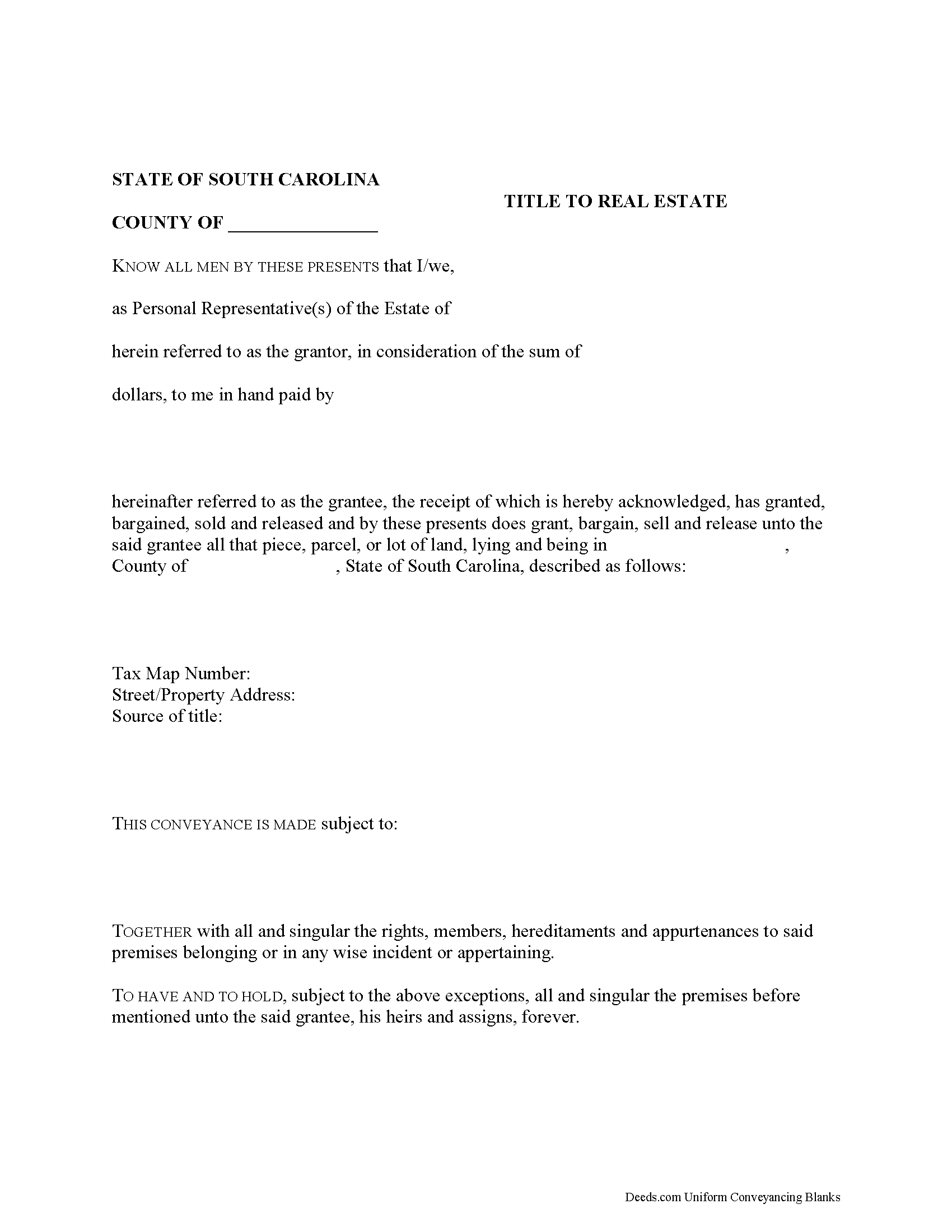Download South Carolina Personal Representative Deed of Sale Legal Forms

South Carolina Personal Representative Deed of Sale Overview

In South Carolina, title to a decedent's real property devolves at death to the decedent's heirs (intestate estates) and devisees (testate estates) (S.C. Code 62-3-101). Though title passes by operation of law, the estate is still subject to administration in probate. Probate is the legal process of settling the decedent's estate and distributing assets to those entitled to receive it.
Unless empowered in the decedent's will, a personal representative (PR) may not sell property from the estate without the court's authorization (62-3-711(b)). The procedures for selling real property in probate are outlined at 62-3-1301 et seq., and are "the only procedure for the sale of lands by the court, except where the will of the decedent authorizes to the contrary" (62-3-1301). A PR may be required to sell real property to pay claims on the estate or for other expenses in the course of administration.
The process for a sale of realty involves filing inventory and appraisement with the court, submitting a petition for the sale of property, filing a lis pendens (a notice that the property is the subject of litigation) and serving summonses, hearing the petition, and the court issuing an order for either private or public sale.
To transfer title following a sale, the PR executes a deed. A PR deed follows the statutory form of conveyances in South Carolina, under S.C. Code 27-7-10. When recorded, the deed transfers an estate in fee simple to the grantee with full warranties of title.
A purchaser receiving a deed from a PR "takes title to the real property free of rights of any heirs or devisees or other interested person in the estate and incurs no personal liability to the estate or to any heir or devisee or other interested person in the estate" regardless of whether such sale was proper (62-3-910(B)). Purchasers dealing with personal representatives are also protected under 62-3-714, provided the estate is not administered under Part 5 of the Probate Code (estates in mediation; see 62-3-501 et seq.). Buyers may request a short certificate from the PR to determine whether the estate is under Part 5 administration.
The deed must meet all state and local requirements for documents affecting title to real property. The PR signs the deed in the presence of a notary public and two witnesses before recording in the Register of Deeds' office of the county where the subject property is situated. A certified copy should be delivered to the probate court.
Consult a lawyer with questions regarding probate and personal representative's deeds in South Carolina, as each situation is unique.
(South Carolina PRDOS Package includes form, guidelines, and completed example)